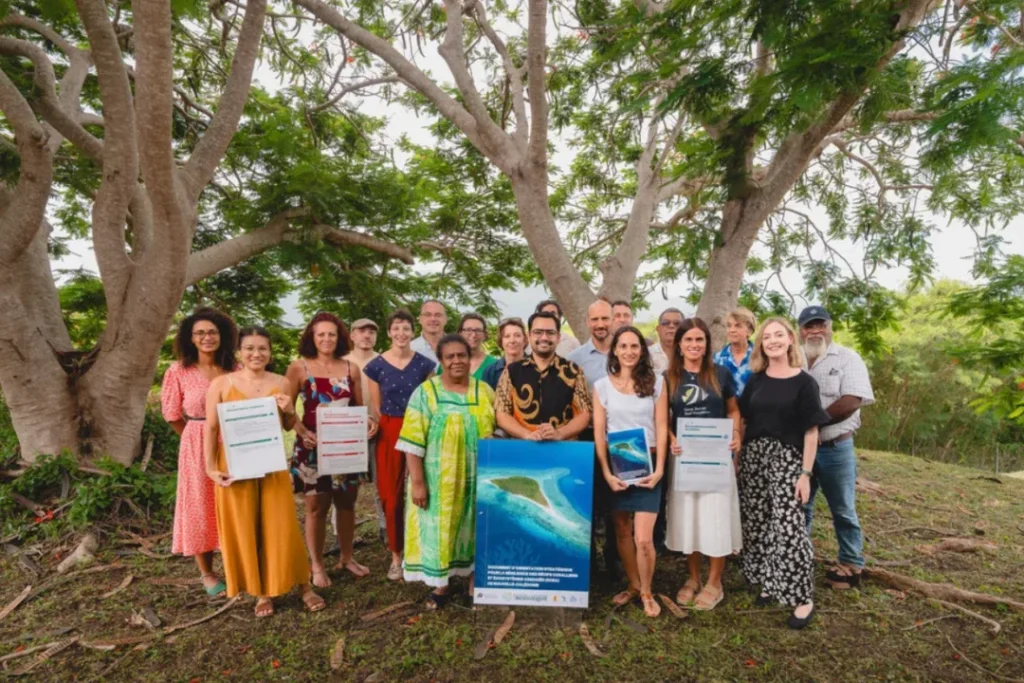
New Caledonia and UNESCO, are both members of ICRI, and last Friday, the Lagoons of New Caledonia: Reef Diversity and Associated Ecosystems World Heritage site in France took a proactive step to safeguard its coral reefs with the launch of its first strategic reef resilience plan. The strategy brings all partners across the World Heritage-listed coral reef together behind a shared future for the reef. It is expected to boost climate change resilience of both the ecosystem and the communities who depend on it.
The Lagoons of New Caledonia, which were designated as a World Heritage site in 2008, features some the world’s most extensive reef systems, teemed with incredible marine life. As in other coral reefs around the world, the reefs show signs of stress due to local pressures, including sedimentation and overfishing that are further exacerbated by climate impacts including cyclones and warming ocean temperatures.
As part of the Resilient Reefs Initiative, the New Caledonian Biodiversity Agency (ANCB) spearheaded a reef-wide stakeholder engagement to design the first strategic plan for the reef as a whole and a series of collaborative actions to enhance the reef’s resilience amidst increasing climate impacts. The strategic document is backed by over USD$ 450,000 in project funding and builds upon seven local resilience projects that were implemented across the reef over the past four years. Over 200 stakeholders participated in the design of the strategy, fostering a unified approach to the future conservation of the World Heritage site.
Key efforts focus on collaborative science to assess ecosystem health that is necessary to inform effective management strategies and on creating enabling conditions for swift responses to ecological changes due to climate change. Efforts are also made to control Crown of Thorns starfish outbreaks through participatory monitoring and improved management. A multinational collaboration is also underway to study thermotolerant coral markers across various reef areas, producing predictive maps to bolster global reef management tools and advance coral reef conservation efforts worldwide. Design and implementation of the resilience strategy is supported by a dedicated Chief Resilience Officer who facilitates technical support from a network of experts and oversees the strategy’s delivery.
The Lagoons of New Caledonia is the fourth marine World Heritage site to launch a resilience strategy under the Resilient Reefs Initiative, following similar launches in Belize, Palau, and Australia in 2023. All four sites have since started implementation through specific actions to address climate resilience challenges.
Resilient Reefs is a global, six-year, AUD$14 million programme (approximately USD$9 million at the time of writing), established by ICRI member the Great Barrier Reef Foundation in collaboration with ICRI members UNESCO and The Nature Conservancy’s Reef Resilience Network, alongside, Columbia University’s Center for Resilient Cities and Landscapes, Resilient Cities Catalyst and AECOM.
The ‘Strategic Guidance Document for the Resilience of New Caledonia’s Coral Reefs and Associated Ecosystems’ is available in two languages:
Source: UNESCO press release
